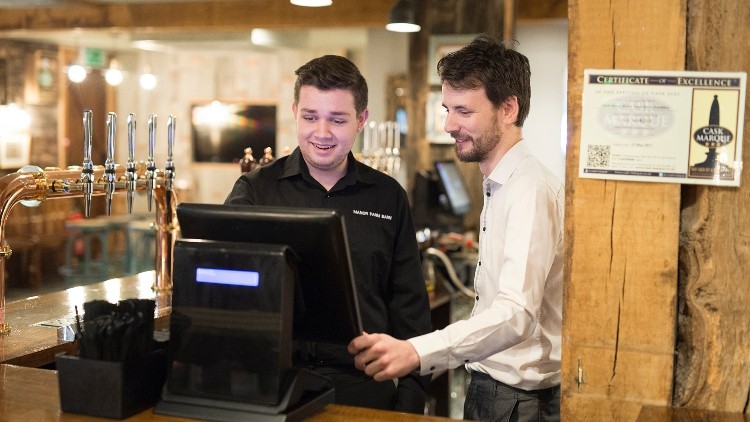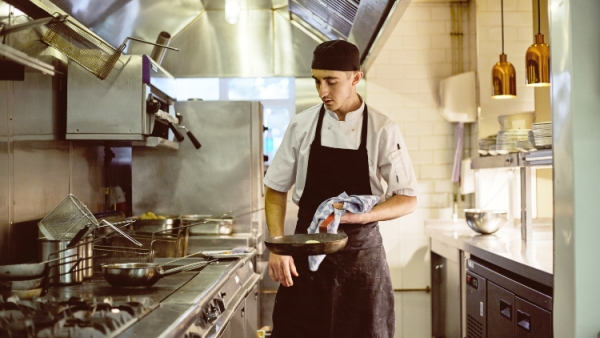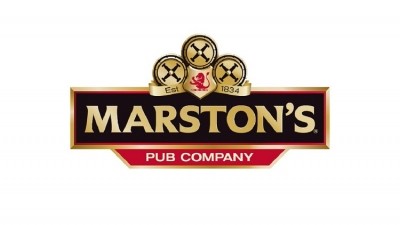How are pubcos helping staff grow into careers in the on-trade?

Apprenticeships for all
While more businesses are now offering apprenticeships, Jill Whittaker, managing director of training company HIT, notes “a significant decrease in SMEs offering them as many cannot afford the 5% contribution they have to make”.
To address that, HIT has launched a campaign, titled Don’t Waste: The Future of Hospitality, that champions career opportunities and calls on larger companies to help fund apprenticeship programmes at smaller firms.
“Our research revealed 65% of levy paying hospitality businesses are unaware they can transfer 25% of their levy to support other businesses,” explains Whittaker. “With so many vacancies to fill, the industry needs to work together to attract, retain and train talent. By investing in apprenticeships, businesses will help grow skills across the sector.
“Apprenticeship programmes that fit into a long-term skills strategy is a huge benefit when it comes to attracting and retaining talent for the future, and many pub companies now offer development programmes that take apprentices from entry level all the way into management – meaning staff have a clearly defined career path and will stay to succeed.”
Secreted away on the BBC World Service in the depths of August, a show called The Food Chain took as its theme ‘the young people saving the British pub’, talking to 20-something licensees who have enthusiastically seized the opportunities provided by the industry and are running their own, thriving businesses.
It’s a story too rarely told. Stigma still hangs heavy over the idea of a career in pubs. You can feel the sigh of disappointment from the parents when a child announces they’ve found a job, but it’s behind a bar.
“Well, it’ll do for now,” they generously concede. But what would they say if, in five years’ time, that same child had risen to take charge of a million-pound business with a couple of dozen people working for them?
Look to the leaders
Such sharp climbs are not uncommon, and as Brexit continues to create uncertainties around staffing in the sector, pub companies are striving all the harder to create career paths that can hold talent within the sector.
“In general, pubs have a strong track record of training and developing people,” says BII chair Mark Robson. “You only have to look at the leaders in our industry, a good number of them started in a kitchen or behind a bar as I did.
“But in the past few years, the recruitment pool has dried up. Pubs have had to invest further in development and market this to recruits in a more aggressive and proactive manner.
“Candidates have the luxury of scrutinising several potential employers before they decide who to work for and they are rightly looking at all the factors – training schemes, development plans, perks, benefits and remuneration.
“As an employer, if you don’t have a decent offer with clear progression opportunities, you’ll struggle to get the right people and have little chance of retaining them if you do.”
One positive change is the ‘new’ levy-funded apprenticeships. Robson believes it has encouraged more employers to get involved in schemes, including his own rm of 10 pubs, Surrey-based Red Mist Leisure.
Last September, it launched its own 12-month apprentice programme, working with local colleges to offer recruits a path to positions at levels two and three – commis chef and chef de partie in off-putting restaurant terminology – described by Robson as “the soldiers of the kitchen” especially in short supply.
Management roles realised
Kent brewer Shepherd Neame is also among the latest operators to embrace apprenticeships, with a scheme that will eventually take employees to level four, equipping them to be pub managers or head chefs.
“In the past I’d never touch apprenticeships because I didn’t feel they added any benefits,” admitted head of training Angela Barlow. “It’s different now. We can design our own pathways, back and front of house, and that’s attractive.
“We had a long conversation with our provider, Umbrella Training, about what skills assistant managers should have, for instance. At level three, they don’t need to do P&Ls but they do need to understand where pro t comes from, the impact of waste and lost stocks, etc.
“In the long term, we want to grow our own pub managers and, under the new scheme, people can reach level four in 18 months.
“We’ve created chef apprenticeship positions at 12 sites and we’ve advertised them internally and externally. Then we’ll go into schools and colleges to offer alternative careers.
“We can say to them they could be a pub manager in four or five years if they apply themselves. If they show commitment, we’ll support them and show commitment to them.”
Lee Wooley, head of learning and development at pubco Stonegate, takes a similar approach. “Our motto has been that if someone puts the effort in, we’ll get them there,” he says. “From day one, we’ve had a target of recruiting 80% of our GMs internally.
“We know they generate 5% more pro t than an external recruit because they get the culture. And they repay the training we give them five times over. It’s key to catch them early by creating career pathways appropriate to their generation and putting a bit of humour into it, making it enjoyable, and making them aware that a 21 or 22-year-old can be running a £1m-plus turnover business with a team of 30 or 40.
“We can also appeal to those left behind by education. You don’t need degrees and there’s scope to go into area management, HR, finance, operations. It’s a diverse business that can appeal to most people.”
Training details
Those wanting to run their own pub will learn more than hard skills. Stonegate’s Accelerator programme, designed to prepare people for management roles, is “about changing mindsets, personal values, becoming a better person before you head a team for the first time”.
In July, the company launched video-based ‘micro e-learning’ to appeal to younger recruits with short attention spans. As well as covering the basics, there are optional ‘lifestyle’ modules, on health and mortgages for instance.
“We’ve already delivered 150,000 modules,” reports Wooley. “People say learning is more enjoyable now, and the take-up of the optional elements has been interesting. Now we know the hunger is there, we can develop it further.”
Training staff in transferable skills that will stand them well in all kinds of jobs is a big part of what makes a pub career attractive.
At Marston’s Pubs, where more than 3,500 employees and 500 apprentices are either in training or on a development programme, manager training has evolved in the past couple of years to be “more about behavioural skills,” says head of training Jane Murray.
A fresh start
It’s not only ambitious school-leavers who can benefit from a career in pubs.
Only a Pavement Away, founded by pub industry veteran Greg Mangham, is there to provide a conduit to take homeless people and ex-offenders off the streets and into kitchens and bars, giving them a career and a fresh chance in life.
The scheme has so far given that chance to 45 people, 24 of them in pubs, and 25 of them are still in work or awaiting start dates.
“The perception of working in hospitality is that it’s very hands-on, but you might be managing a big business. It’s not just pulling pints and chatting to regulars. You can gain some really transferable skills and behaviours that can set you up for the future.”
A dedicated team at the company, drawn from the pub front line, is now specifically charged with ensuring all employees and future employees are helped to identify the training programmes for them.
“Qualifications are mapped against apprenticeships specific to Marston’s,” explains Murray.
“This year, we have 50 vacancies for apprentices and we had 30 school students on work experience placements in May and June. We’re trying to educate parents.
“We also educate GMs to understand the importance of nurturing talent in their pub.
“Apprenticeships are available for every role, not just school-leavers. We have four GMs who did apprenticeships then became area managers.
“Back of house has been more of a challenge but we’ve worked closely with chefs on creating a ‘lead chef’ role mentoring other chefs. Beyond that, there are 40 trainers in my team. So there are a mix of career paths.”
That breadth of opportunity is stressed by Susan Martindale, group HR director at Mitchells & Butlers (M&B).
“We employ between 40,000 and 44,000 people and we’re blessed with a plethora of talent. It’s important to identify potential and give people a platform to develop careers.
“The beauty of our industry is that you can go from pot-washing all the way to the boardroom, and we’ve recently extended our apprenticeship programme through to MBA level.”
Since M&B turned its focus to chefs and kitchen managers three years ago, more than 200 people have been through its Chefs’ Academy – which recently earned a Princess Royal Training Award.
“It’s important, too, to think about employees’ needs,” Martindale continues. “Our training is now almost completely digital and we’ve introduced culinary masterclasses. Our research shows people want that opportunity to develop, to become experts, and upping their skills is important for the guest experience, too.”
Staff turnover at M&B has fallen in each of the past five years “and we’ve made a strong start to this year, which we’re pleased about with Brexit on the horizon”.
Along with Greene King and Marston’s, the company has been promoting pub careers among school-leavers through an initiative titled Loving Hospitality.
“We’re all facing the same challenges and there’s power in joining together. We all have a responsibility to shout about our great stories and it’s great to speak to parents and teachers about apprenticeships as a real alternative to university.”
And small pub groups are taking careers just as seriously.
“It’s the grounding of the business,” says Vanessa Mulholland, head of people and recruitment at Red Mist. “Training and benefits are at the forefront of our minds. Whether people are just with us for the summer or want to have a career for many years, we support everyone.
“We’ve sustained a small company culture as we’ve grown and we organise a lot of social events where we can talk to staff. That’s backed by an appraisal system at three months and then annually, based around objectives – are they getting what they want out of their time here?
“We’re lucky we’ve had people in the company who are able to talk to a new team member about how they joined at 17 or 18 and are now a manager or a head chef in their early 30s.”
Interested in working in the pub industry? Then take a look at MA’s jobs site.








